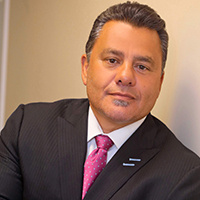Saint Leonard DUI-DWI Lawyer, Maryland
Sponsored Law Firm
-
 x
x

Click For More Info:
-
James E. Crawford, Jr. & Associates, LLC
999 Corporate Blvd. Suite 100 Linthicum, MD 21090» view mapCriminal Defense, Divorce & Family Law Move Forward With Confidence
Our Firm's team of family, criminal, and business lawyers understand that each case presents unique challenges and must be met with equally unique approaches.
800-789-9220
Robert Richard Castro
✓ VERIFIEDRobert Richard Castro is an attorney currently serving the people of Washington, D.C. and Maryland. A partner in a firm in Waldorf, Maryland, he is pr... (more)
Charles Waechter
✓ VERIFIEDAnnapolis Criminal Defense Law Firm If you face criminal charges, an experienced and respected defense lawyer can help protect your rights, evaluat... (more)
Morgan E. Leigh
✓ VERIFIEDPrior to joining Scrofano Law PC, Ms. Leigh was a solo practitioner who specialized in criminal and DUI defense. During her time as a solo practitione... (more)
FREE CONSULTATION
CONTACTFREE CONSULTATION
CONTACTFREE CONSULTATION
CONTACTEdward J. O'Connor
FREE CONSULTATION
CONTACT James Crawford, Jr. Linthicum, MD
James Crawford, Jr. Linthicum, MD Practice AreasExpertise
Practice AreasExpertise



